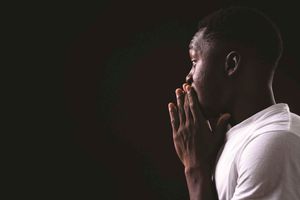
The Supreme Court of Kenya in Nairobi.
There is an assumption in most societies, especially in democracies, that politics is a servant of the law. That’s incorrect. It’s the other way round – the law serves politics. I say this not to be cheeky, or poke some people in the eye. I simply want to set the record straight so that we can debunk some illusions. Politics itself is simply a form of civil war by other means among citizens. Absent politics, society would be plunged in real civil war.
But politics itself determines a country’s economic order. Both the economy and politics of a country are in turn ordered, organised, and regulated by law. The law is thus the handmaiden of political society and its economy.
It’s because of the supremacy of the law in the organisation of both the economy and politics that the latter are thought to be subordinate to it. The key terms here are “organising,” “ordering,” and “regulating.” Thus the law does not “determine” the nature of the economy, or politics. It’s itself “determined” by the nature of the economy and politics. It’s, therefore, subordinate to the latter. Understanding these distinctions and nuances is critical for the effective functioning of a democratic polity. This is so because the constitution is a law that is itself the society’s “grund-norm”, which means the most superior predicate in any society. The constitution “organises” and “allocates” all the powers, rights, and obligations in a democratic society.
Supremacy over politics
In other words, all – and I mean all – the powers of the State are given by the Constitution. If the Constitution doesn’t grant a power to the State, its organs, or officials, then that power doesn’t exist and is unknown in law. Thus the State or State official cannot exercise a power that’s alien to, or not granted, by the constitution. Of course the Constitution doesn’t “interpret” itself. The task of its interpretation as indeed of all laws which issue from it, is bestowed upon the Judiciary, and not the political branches, to wit, the Legislature and the Executive. Even where the Judiciary finds the existence of a right that’s not explicit in the Constitution, it still derives it from the constitution.
It’s because of the supremacy of the Constitution as the birth certificate of the State that people conflate it with its supremacy over politics and the economy. However, both the economy and the law are creatures of politics. By this I mean that the democratic Constitution is itself determined in a political process through forms of public participation or electoral referenda where the people as the basic sovereigns in a State adopt the Constitution. Once the people have sanctioned the Constitution in a popular democratic process, then it becomes the country’s basic law. This basic law binds everything within the State. In essence, it defines the State and composes it various constituent parts, organs, and people within it.
The other concepts that spook common people and how they relate to politics are the rule of law and the independence of the Judiciary, one of the three co-equal branches of the democratic State. Again, here we want to distinguish the law from the rule of law and their kinship to the arena of politics. The law per se is simply the black letter straight jacket that orders society, politics, and the economy. In its raw, purest form the law is a blunt instrument devoid of equity and social justice. It’s not inherently democratic or just. It only becomes so when imbued with social justice, equity, and equality when it’s deployed in the context of the rule of law.
Opportunity of self-realization
As the rule of law, the law in a democratic society pivots on equal protection and anti-discrimination norms. These norms cease to be mere fictions when they move from formal equality and abstract autonomy to substantive equality and actual individual autonomy. This is how law ceases to be “an ass, an idiot” as Charles Dickens pithily wrote in the English classic Oliver Twist. But for this to hold, and for society to become an intelligent democratic polity, politics must continue to evolve to a higher human ethos devoid of corruption, human rights abuses, and the untrammelled use of state power. In such a society, the political class must realise that it doesn’t have a single human being to waste.
I didn’t set out to be dense or highfalutin in this column. But I thought it was essential as Kenyans debate the fundamentals of a democratic society we revisit its basic normative and conceptual foundations. In the thick of politics and its stupidities, it’s easy to forget that the state has a basic raison d'être – to safeguard the humanity of common folk and give them the greatest opportunity of self-realization. And to remember that the highest office in the land is that of citizen – not President, Governor, Senator, MP. So the law can serve politics.
Makau Mutua is SUNY Distinguished Professor and Margaret W. Wong Professor at Buffalo Law School, The State University of New York. He’s Senior Advisor on Constitutional Affairs to President William Ruto. X: @makaumutua







